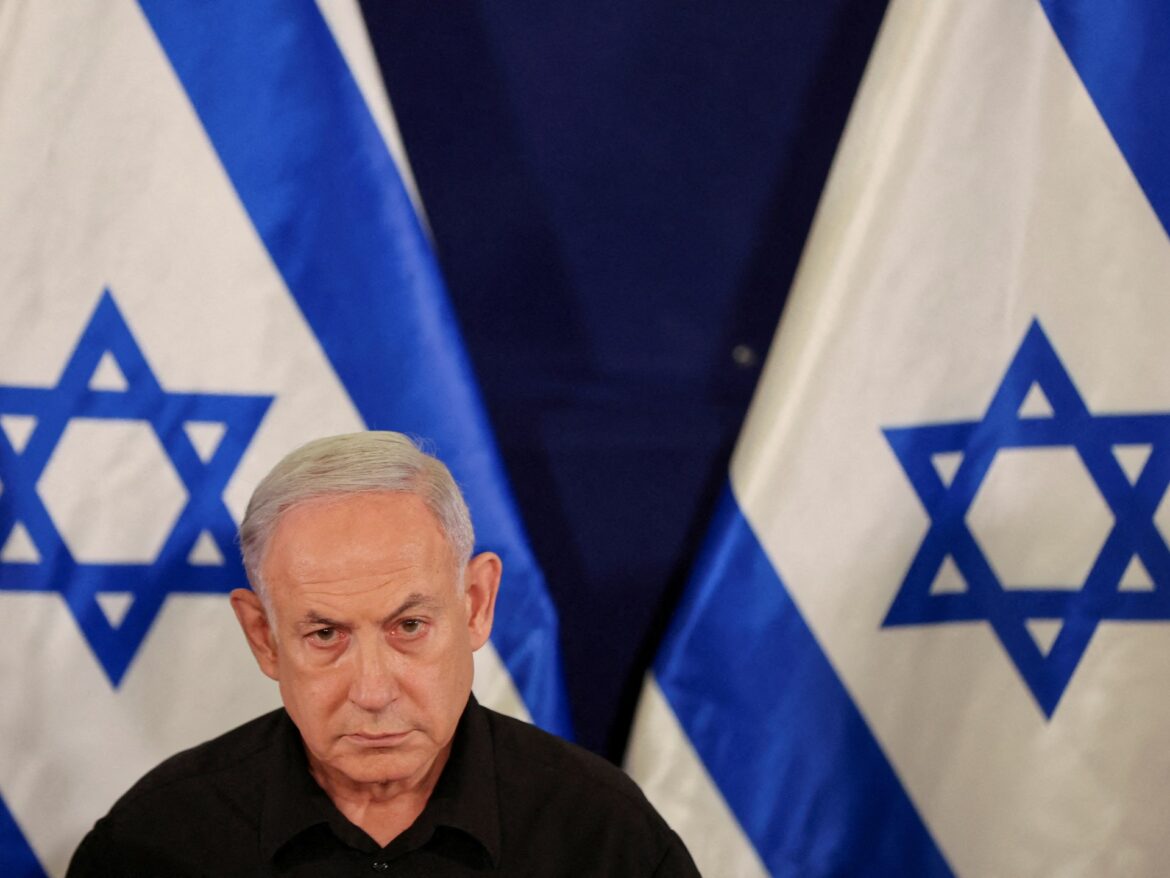It took a tweet this weekend for cracks to appear within Israel’s political establishment.
Shortly after midnight on Sunday, Prime Minister Benjamin Netanyahu wrote that he was never informed of the warnings about the Hamas attack on Israel on October 7. Netanyahu instead appeared to blame his army for the attack, in which at least 1,400 people were killed. and intelligence chiefs. They had assessed before the attack that Hamas “was deterred and ready for a settlement,” he noted.
The statement caused an uproar. Political leaders criticized Netanyahu for playing politics while the country was in the midst of a difficult military campaign inside Gaza. Such was the outrage that the Prime Minister deleted the tweet and, in an unusually sober tone, apologized for his comments. “I was wrong,” he said.
Experts say the episode confirmed a growing divide within the political and military establishment, which questions Netanyahu’s leadership and his ability to guide the country through war without prioritizing his own interests over national security.
“To say it was out of order would be an understatement of the year,” said Yossi Mekelberg, a research associate in the Middle East and North Africa program at Chatham House.
“This is a very difficult military campaign, so you want a responsible prime minister and there is not a single person (in the government) who trusts Netanyahu – that is the main problem of this cabinet,” Mekelberg said.
Shortly after October 7, Netanyahu formed an emergency war cabinet by expanding Israel’s governing coalition to include a number of former senior army officers from the ranks of the opposition.
One of them was Benny Gantz, a former defense minister, who quickly called on Netanyahu to remove his controversial post while showing full support for the military and the Shin Bet, Israel’s domestic intelligence agency. .
A wave of criticism from other leaders followed. “(Netanyahu) is not interested in security, he is not interested in hostages, only in politics,” said opposition lawmaker Avigdor Lieberman, Netanyahu’s former defense minister. The Israeli military’s main spokesman, Daniel Hagari, declined to comment. “We are at war,” he said.
The heated exchanges are the latest signs of tension within Israel’s political establishment – including within the war cabinet – as it grapples with the fallout from one of Israel’s greatest intelligence failures. country.
Many members of the country’s security apparatus have acknowledged their shortcomings, but not Netanyahu. Before the heated tweet, the Israeli leader held a press conference on Saturday during which he sidestepped the question of whether he was responsible, saying that everyone will have to “give answers to the difficult questions, including me.” , once the war was over.
“This is just the tip of the iceberg of what the Israeli establishment will be once the conflict ends,” said Alon Lien, former director of the Israeli Foreign Ministry. “He sets the stage for his argument,” Lien said.
The ties between the prime minister and a large part of the Israeli public have already been tested. The war follows a political crisis as a far-right ultranationalist government led by Netanyahu pushed for controversial reforms that reduced the powers of the judiciary and which opponents criticized as a threat to democracy. Tens of thousands of demonstrators have taken to the streets for months, opposing the judicial overhaul.
Opponents of the reform included military reservists who threatened to refuse to volunteer. Some critics say the scale of the protests was such that they impacted the military’s readiness and capabilities.
Since October 7, thousands of reservists have taken up arms to join the fight against Hamas – the country’s biggest military challenge since the October 1973 war against Egypt and Syria.
On Monday, the Israeli military said its troops and armored vehicles were moving deeper into Gaza as part of the “second phase of the war.” It comes after more than three weeks of relentless bombing of the besieged enclave that has killed more than 8,000 Palestinians and triggered a humanitarian catastrophe.

But analysts say unity within Israel against Hamas does not necessarily extend to support for Netanyahu’s government itself.
“This government had already lost the trust of a significant sector of society before October 7 and it has not particularly broadened its base of public support since then,” said Mouin Rabbani, co-editor of Jadaliyya and non-profit researcher. -resident at the newspaper. Center for Conflict and Humanitarian Studies.
According to an Israel Democracy Institute poll released last week, trust in government has collapsed to its lowest level in 20 years, with 20 percent of Israelis saying they trust Netanyahu’s cabinet – or eight percentage points lower than in June.
Yet Netanyahu is known for his political survival skills. Israel’s longest-serving prime minister first took office in 1996 and has remained in power for 13 of the past 14 years.
“There is widespread opposition to him and the conduct of his government, but that should not distract us from the fact that he also has a deep reservoir of public support,” Rabbani said.
And even if the war cabinet may be divided, expanding the government to include high-ranking military personnel – as Netanyahu has done – could still serve his political interests, he added.
It’s a move that could not only aim to broaden his political base, Rabbani said, but could also help him more effectively deflect blame from security officials for possible military failures once the war ended.



